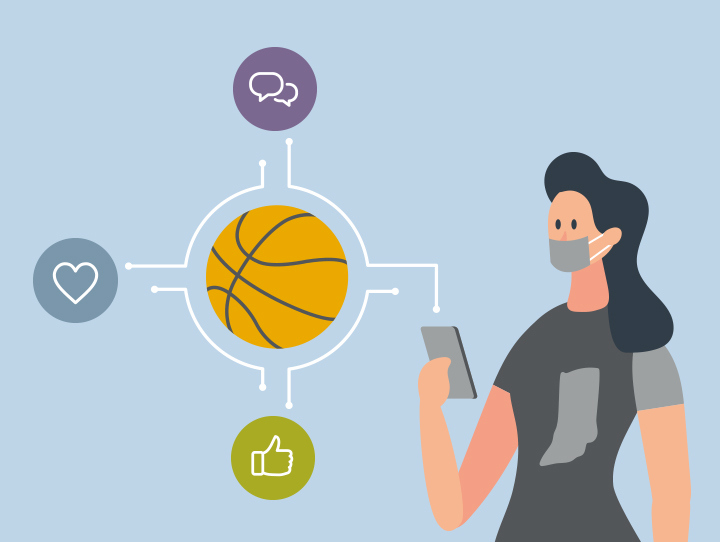Digital Marketing
Digital Expertise to Benefit Community Colleges

This year was a unique year for the NCAA Final Four. To help prevent the spread of COVID-19, crucial health and safety protocols were in full effect across all the arenas and stadiums where teams played — from Mackey Arena to Lucas Oil Stadium. Event capacity was decreased and socially distancing was required.
This was a big shift from the experience fans may remember from the 2019 NCAA Tournament (2020 was canceled due to the pandemic). But with similar measures taking place across the world of sports throughout the past year, it’s an adjustment many fans had already gotten used to.
There’s no doubt that COVID-19 has changed sports — possibly forever. And, in doing so, the pandemic has also changed sports marketing. Let’s take a look at how marketers have adjusted to this new world.
Throughout 2020, there were fewer fans in the stands than ever before.The MLB and NHL shortened their seasons, while the NFL mandated strict safety protocols and the NBA went inside a Bubble.
Since following sports on TV and online has always been part of the at-home fan experience, engaging with fans digitally was already part of many sports marketers’ DNA. But with the absence of in-person fan experiences, the pandemic presented an opportunity for sports marketers to take their digital fan engagement to the next level.
For many sports marketers, the keys to giving sports fans unique virtual experiences during the pandemic have been to use analytics to keep a pulse on fan sentiment and to use artificial intelligence to tailor content to fans’ preferences.
For example, the marketing team at Pacers Sports and Entertainment had to find ways to keep fans engaged — even if they couldn't be in the stands. To them, this meant taking a different approach to understanding how fans wanted to engage under a new normal. They sent broader survey questions and push notifications to fans after games, rather than multiple, specific ones throughout, and used the insights they gained to build more timely, relevant experiences for fans.
Optimal digital fan engagement takes place across a variety of channels, personalized to each fan — but for sports marketers, no other channel provides the insights that social media can.
As anyone who’s ever been to a game — from Little League to the Super Bowl — can attest, sports are a social experience. Without fans cheering in the stands, sports aren’t sports. For the majority of fans during the pandemic, social media has been the only place where this cheering could happen at all.
At the beginning of the pandemic and during the off season, sports marketers experimented with new types of social media content; entertaining fans with topical memes and personal posts from players. When the teams returned to the field, sports marketers jumped at the chance to hop into conversations and engage with fans in real time.
Even in the absence of in-person events, sports teams found ways to build closer relationships with fans by engaging in new or different conversations on social media. Many seized the opportunity to take a stand on issues of social justice. Others made an effort to the share smaller, intimate moments — like this New York Rangers clip of Artemi Panarin — fans missed by watching from home.
Even once society and sports return to normal, the lessons sports marketers have learned from the past year of digital fan engagement will have far-reaching impacts.
Fans are only becoming more connected, so sports marketers will need to continue to use digital channels to engage fans in real time whether they’re at home or in the stadium. At TrendyMinds, we're digging into the data behind the 2021 Final Four website (learn more about the website project here) and collecting as many insights as we can to help us engage with fans even better in the future.
The key will still be to keep track of where fans are online, see what they’re talking about, and understand how an athletic team or brand can fit into the conversation.
Right now, fans are chatting about how the NCAA Tournament ended — and we think the sports marketers joining in on those conversations are pretty lucky. We wish all sports fans, players, and marketers out there an exciting and safe 2021 in sports.
For more thoughts on how the COVID-19 pandemic has transformed marketing, read our blog post How COVID-19 is Changing Digital Advertising So Far.